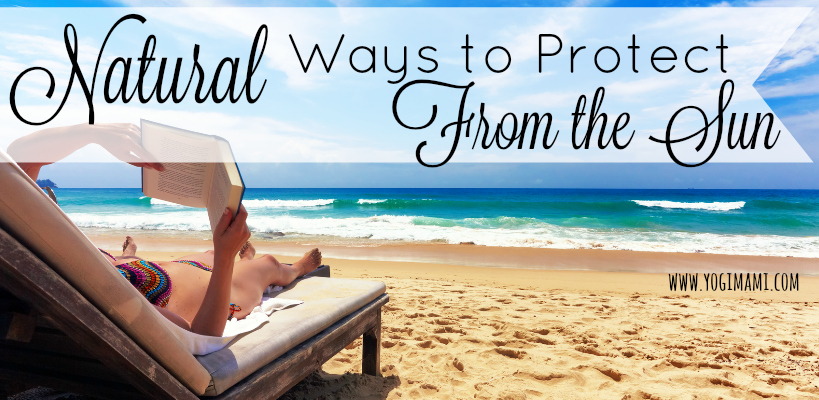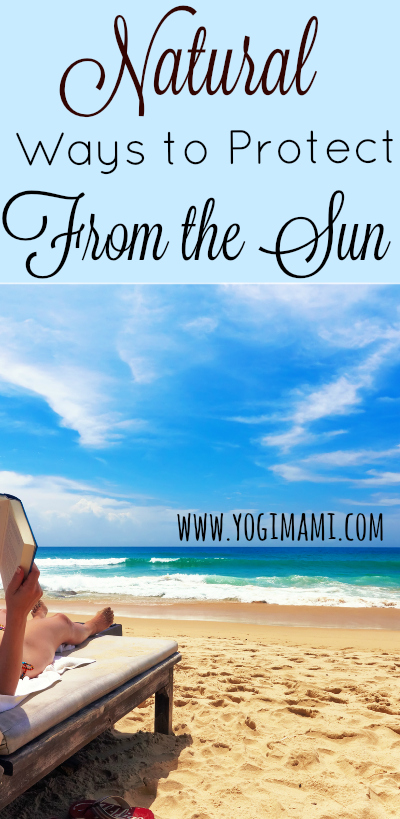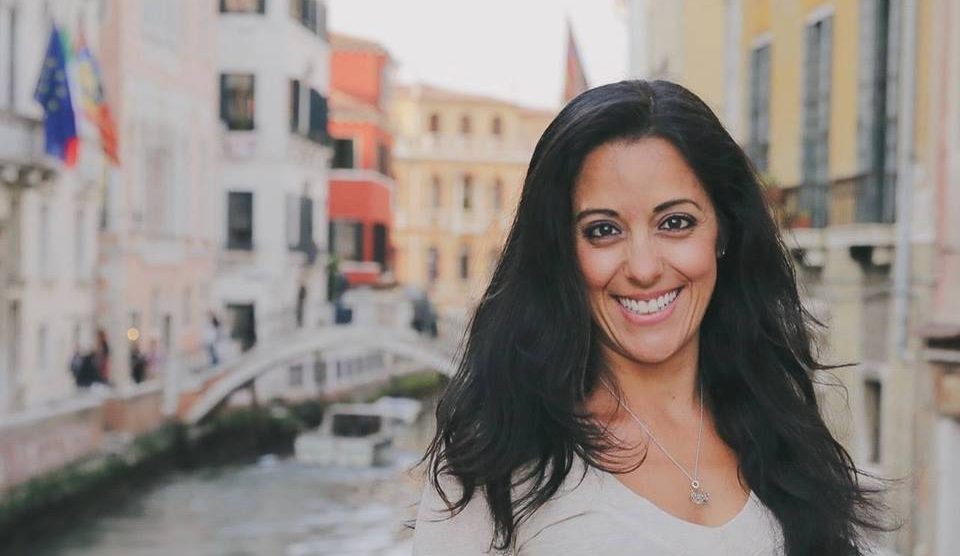
When it comes to Sunscreen there are not too many that I recommend and my family and I hardly ever use Sunscreen. We choose to take a more natural approach when it comes to protecting our skin from the sun and it’s potentially damaging UV rays. In this post I will be sharing with you some of the natural ways to protect from the sun.
Why My Family Doesn’t Use Sunscreen
It’s pretty simple. I try to use as little chemicals as possible, period! I haven’t found too many Sunscreens that I feel good about. If we do use Sunscreen I order from here if we are in the sun for long periods of time, or we use natural methods. Instead of using chemical products I choose to take a proactive approach and use natural ways to protect from the sun.
I don’t fear sun-exposure and try to avoid over-exposure as a safety precaution. The sun has many important benefits. Without adequate sun exposure our physical and emotional health will decline rapidly. However, severe exposure to the sun can cause many health problems as well so it is important to use some common sense when you will be spending time in the sun.
Your Diet Matters!
Eating a diet rich in antioxidants protects against free-radical damage from UV rays. Including certain foods into your diet helps to give your body the nutrition and support it needs for anti-aging. We focus on eating fresh, organic, real foods as much as we can to nourish our bodies in order for them to function optimally. Certain foods can help the body to naturally protect against the sun. Here is a list of what to add to your diet:
- Astaxanthin is an antioxidant that is a powerful protectant around the sun. Astaxanthin is produced only by the microalgae called Haematococcus pluvialis. When its water supply dries up, It is forced to protect itself from ultraviolet radiation. The algae’s survival mechanism—astaxanthin serves as a “force field” to protect the algae from lack of nutrition and/or intense sunlight. It is this “radiation shield” that underlies how astaxanthin can help protect you from similar radiation. Many carotenoids are easily obtainable through a good diet rich in fresh organic produce. However, this powerful carotenoid is harder to come by. There are only two main sources of astaxanthin—the microalgae that produce it, and the sea creatures that consume the algae such as sockeye salmon, shellfish, and krill.
- Beta-Carotene has been studied as an effective sun protectant. Research has shown that the antioxident activity of carotenoids offers protection against radiation exposure. Eating foods high in Beta-carotenes or taking a supplement (were to buy) is a great way to supplement your diet to naturally protect against the sun.
- Lycopene is another antioxidant that has been researched as a natural sun protectant to block UV light (has an SPF of about 3). Foods high in lycopene include watermelon, tomatoes, papaya, pink guava, red bell peppers and pink grapefruit. Watermelon is especially rich in lycopene, it contains 40% more lycopene than tomatoes. You can also take lycopene in supplement form. (where to buy)
- Omega-3 Fatty Acids is also helpful to incorporate in your diet to help your body to boost protection from the sun. (where to buy). Recent studies are showing that these fatty acids can protect the skin from the inflammatory response caused after sun exposure. Food sources of Omega-3 fatty acids are fish, fish oil, flaxseeds, english walnuts and specialty egg and dairy sources.
- Green Tea is another easy add to your daily regimen to protect against the sun naturally. Green tea contains beneficial polyphenols that make your more resistant to ultraviolet radiation and therefore prevent premature skin aging.
- Saturated Fat has lots of benefits, protection from the sun is one of them. A recent study shows saturated fats actually protect the skin from the inflammatory response after too much sun exposure and that these good fats also reduce the risk of some skin cancers and increase the time it takes to become sunburned, similar to what sunscreens does. Great food sources of saturated fat include coconut oil, grass-fed butter and raw milk.
- Selenium is another supplement that is a natural way to protect from the sun. (where to buy). Research shows that human cells that contain selenium are less likely to suffer the oxidative stress that is caused by sun damage. Selenium can be found in foods such as Brazil nuts, bread, fish, meat and eggs.
Other Natural Ways to Protect From the Sun
- Wear a hat & sunglasses
- Avoid direct sunlight for long periods of time, especially between the hours of 10-3 when the sun is at its peak. Having shade to protect you from the sun is recommended.
- Stay hydrated! Drinking lots of water when you are out in the sun is important to keep skin healthier and better protected.
Outdoor Skin Support Recipe
Here is my recipe for outdoor skin support serum. I have read many antecdotal testimonies about the ingredients in the recipe. The ingredients are high in antioxidants which help to neutralize the affects of damaging UV rays and nourish the skin. This is what my family and I have been using for the past two years with great success. When it comes to therapeutic results the quality of the oils will make all the difference. You will not achieve the same results with lower grade commercial oils because the properties are not the same. I highly recommend therapeutic grade essential oils (where to buy) for their benefits and here is why I recommend them and choose to use them for my family. This serum is an additional method we use as one of the natural ways to protect from the sun.
Sun Support Serum Recipe
- Coconut Oil has many uses, protecting the skin against the sun is one of them. It’s the base that I use when I am making up a batch of my skin support oil.
- Lavender Essential Oil is very versatile with many benefits and uses, including promoting healthy skin and protecting against sun damage.
- Frankincense Essential Oil is a very potent oil. It is helpful to support radiant skin because it is very regenerating.
- Carrot Seed Essential Oil is high in betacarotene, which we mentioned earlier, and very beneficial for supporting skin health.
The tips I mentioned above have been very successful for my family and I as natural sun protection. Exposure to the sun is not dangerous, it is over-exposure that you want to avoid. A healthy diet and common sense will go along way when it comes to protecting your skin from the sun. For us, we don’t have one single method, it is more of a compilation of natural ways to protect from the sun.


